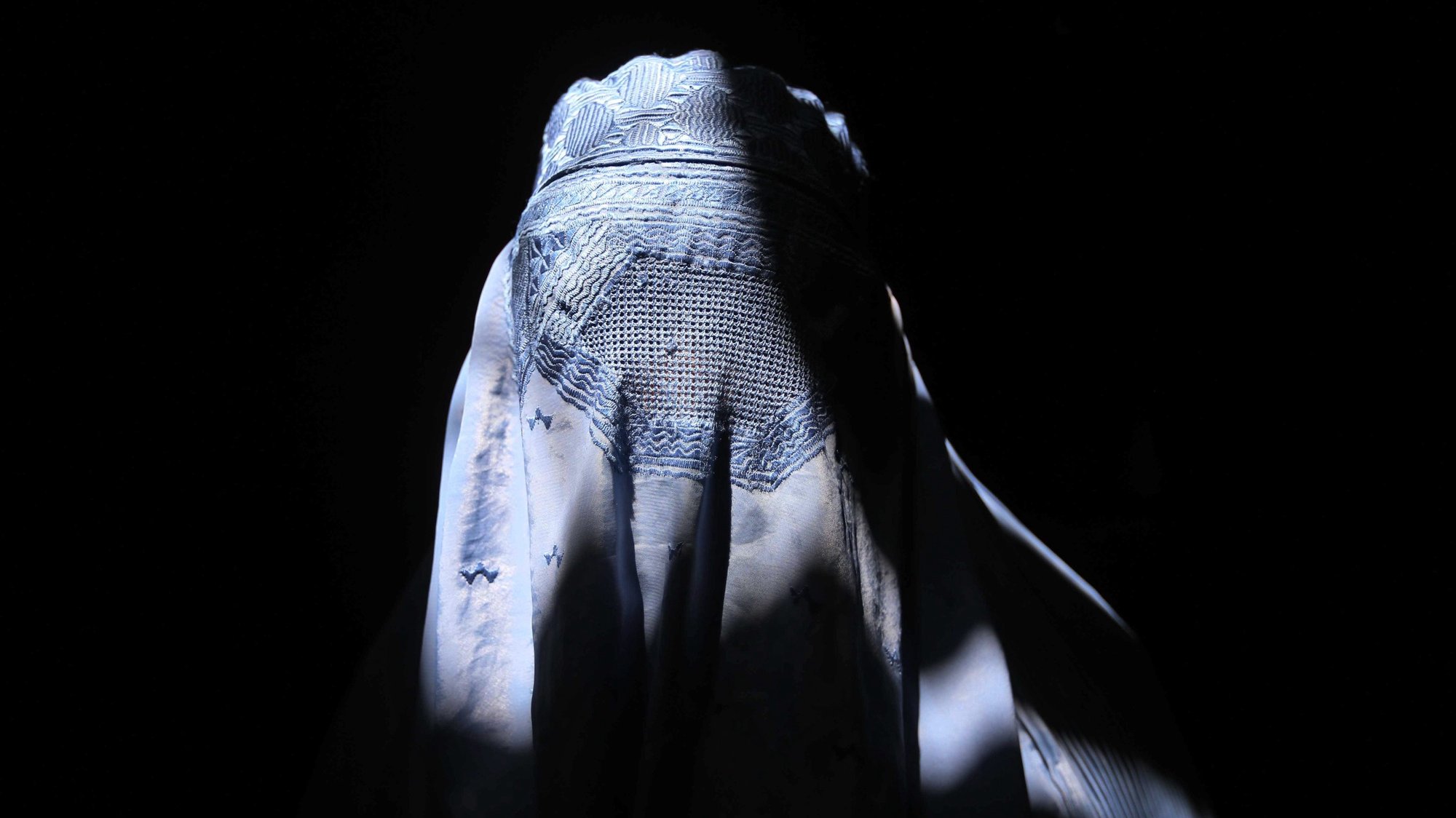LisPassar wearing the burqa was “as if she were buried alive,” a 19-year-old Afghan woman told Lusa news agency on the occasion of the first anniversary of the Taliban’s resumption of power in the country. Until a year ago, Zahra (not her real name) only knew Afghanistan, the result of the occupation by the United States and its Western allies in 2001.
Twenty years later, on August 15, 2021, the Taliban regained power, promising, at that time, to defend the rights won by women, allowing them to work, attend school and have a role in decisions about the country.
The return of the Taliban came after the withdrawal of US and allied troops from Afghan soil, after US President Joe Biden announced in April the end of the war against terrorism in that country.
Despite considering that the situation in which she grew up “was not ideal”, Zahra defended that the one that resulted from the departure of the Westerners and the return to power of the Taliban “is much, much worse” and “is enough to remove hope”, especially on occasions, women and girls. Restrictions on women began early, with many having to stop working, leave public office, drop out of school and, since May 6, wear a burqa whenever they are in public.
“They must use the ‘chadri’ [a burca] because it is traditional and respectful”, imposed a decree published by the Taliban regime, adding that the obligation reaches all “women who are neither too young nor too old” and that “they must cover their faces with a veil when they meet a man who is not.” member of her family” to avoid provocation.
The first time she put on a burqa, Zahra felt “shame and could only look at the ground”, and considers that “it is exactly what is intended, that women feel inferior”.
The burqa was no stranger to Zahra, of course, and she used to see many women in that black or blue robe and the net over their eyes, even in the days of the previous government. But she had never used it and she is “afraid that she will have to use it forever”. “It’s like being buried alive,” she guaranteed, vividly defending that she’s sure God wouldn’t want that for anyone.
Fear is the most present feeling in the life of this young Afghan. Zahra said that she lives in an all-female family and shares her life with her mother and her grandmother, who still remembers wearing a miniskirt and walking alone with her friends through the streets of Kabul.
But that “was before”. Before the Taliban came to power, before the imposition of ‘sharia’, the legal system of Islam became fundamentalist, and “before women were considered second-class people,” laments Zahra. “Now I live in fear of the future. I had to drop out of school and we have a lot of financial difficulties,” she said, adding that her mother does not want to force her to marry, but “someday, she may have to accept fate.”
Since she lives in an all-female family, the difficulties get worse almost every day. Going out into the streets is a complicated process because she does not have a ‘mahram’ at home, a man to accompany her and serve as a guardian in the eyes of the fundamentalists. Although she confesses that her mother sometimes takes risks, Zahra was forbidden to leave her without following the rules. “They’re scared for me,” she explained, referring to her mother and her grandmother and admitting that she was too.
So when it is absolutely necessary to go out, she asks an uncle or a cousin for help, but usually she stays in her room or sews a few things to “help with expenses”.
Unlike the stories her grandmother tells of the years when she was young, when Afghanistan was more like any country in Europe, Zahra doesn’t even dream of wearing a miniskirt. She was raised modestly and always covered her head. “Even if she lived somewhere else, I don’t think she could.”
But driving a car is a dream she has had since she was a child. “Going to work driving my own car and waving to people on the street,” she describes, mentioning that she prays every day for that moment. “It’s a dream of freedom,” she concluded.
Source: Observadora
